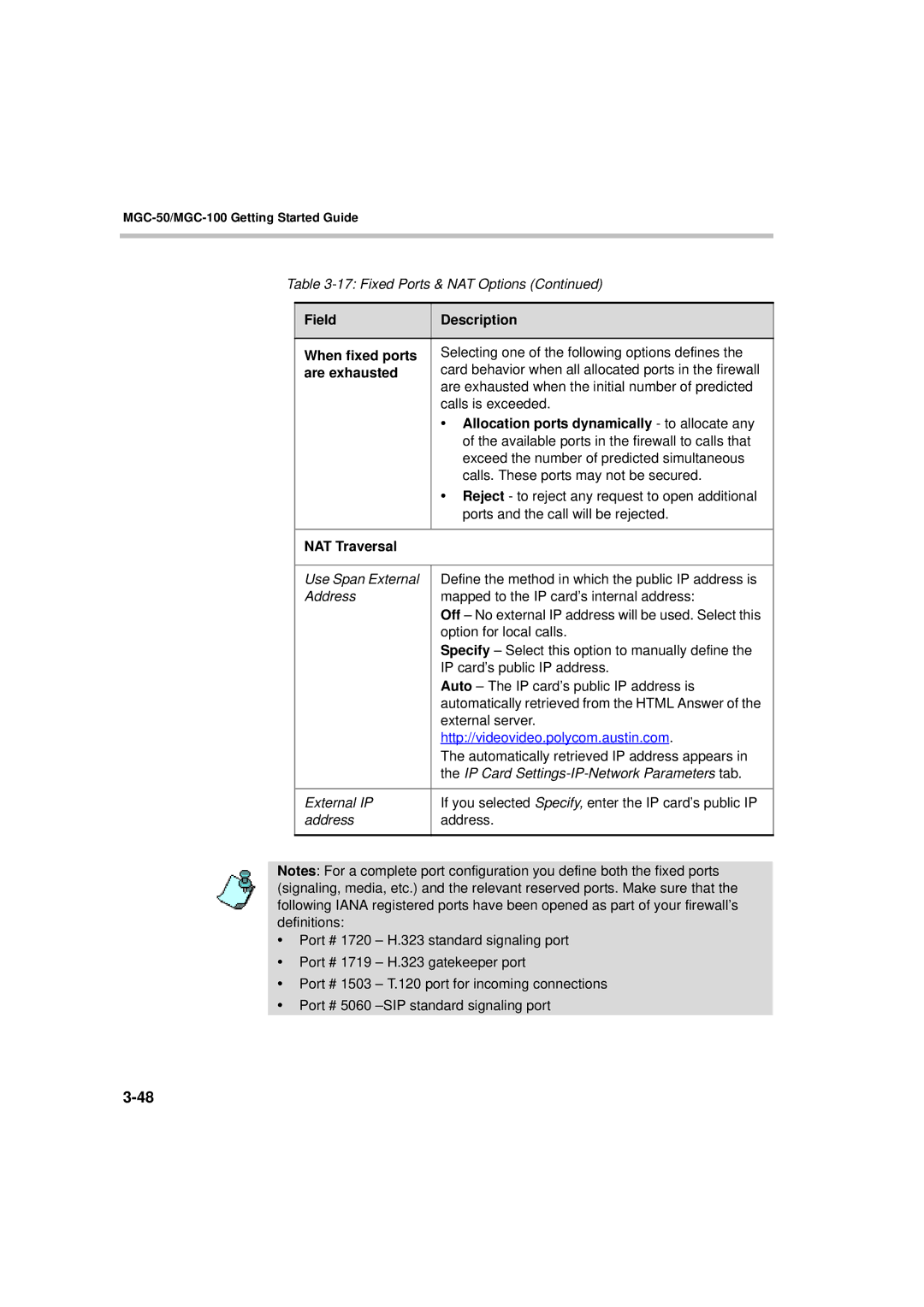
MGC-50/MGC-100 Getting Started Guide
Table
Field | Description |
|
|
When fixed ports | Selecting one of the following options defines the |
are exhausted | card behavior when all allocated ports in the firewall |
| are exhausted when the initial number of predicted |
| calls is exceeded. |
| • Allocation ports dynamically - to allocate any |
| of the available ports in the firewall to calls that |
| exceed the number of predicted simultaneous |
| calls. These ports may not be secured. |
| • Reject - to reject any request to open additional |
| ports and the call will be rejected. |
|
|
NAT Traversal |
|
|
|
Use Span External | Define the method in which the public IP address is |
Address | mapped to the IP card’s internal address: |
| Off – No external IP address will be used. Select this |
| option for local calls. |
| Specify – Select this option to manually define the |
| IP card’s public IP address. |
| Auto – The IP card’s public IP address is |
| automatically retrieved from the HTML Answer of the |
| external server. |
| http://videovideo.polycom.austin.com. |
| The automatically retrieved IP address appears in |
| the IP Card |
|
|
External IP | If you selected Specify, enter the IP card’s public IP |
address | address. |
|
|
Notes: For a complete port configuration you define both the fixed ports (signaling, media, etc.) and the relevant reserved ports. Make sure that the following IANA registered ports have been opened as part of your firewall’s definitions:
•Port # 1720 – H.323 standard signaling port
•Port # 1719 – H.323 gatekeeper port
•Port # 1503 – T.120 port for incoming connections
•Port # 5060
